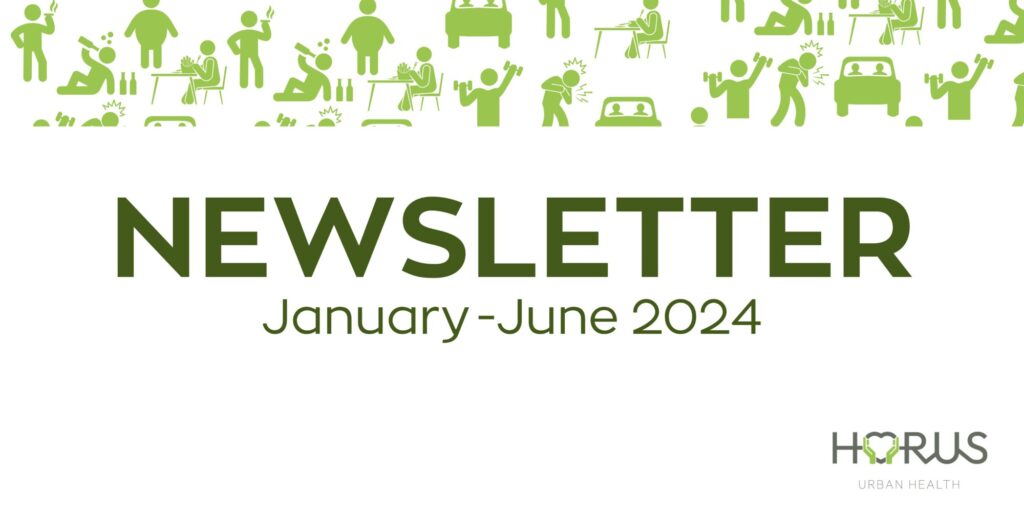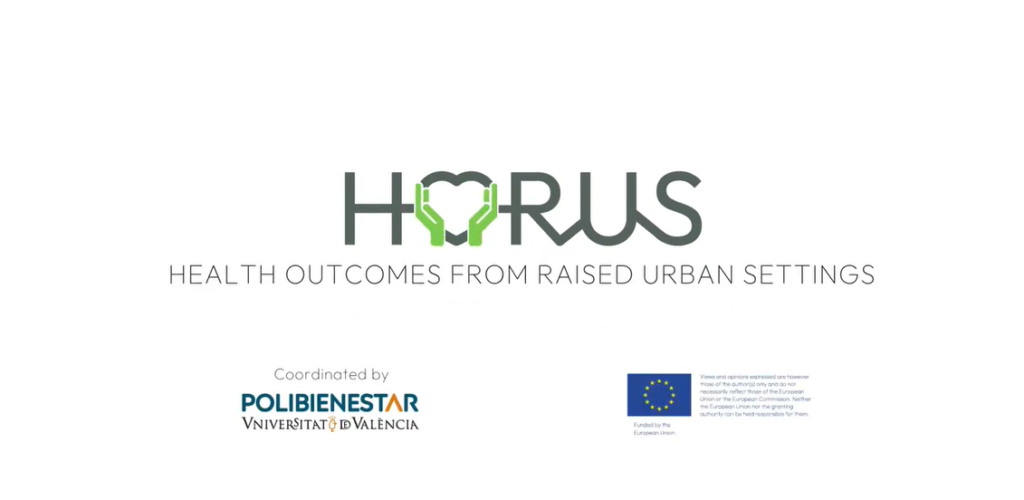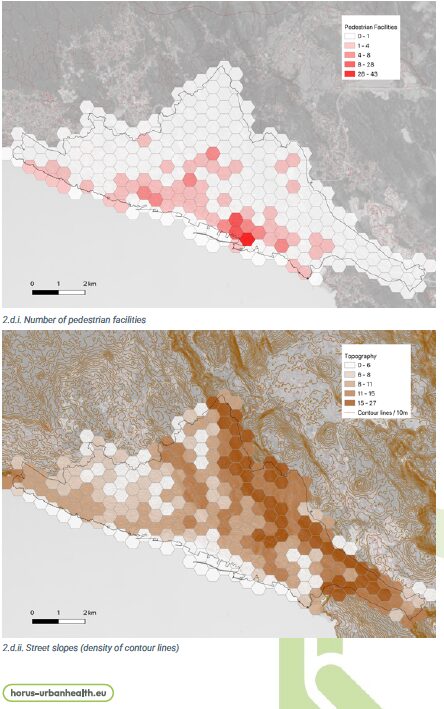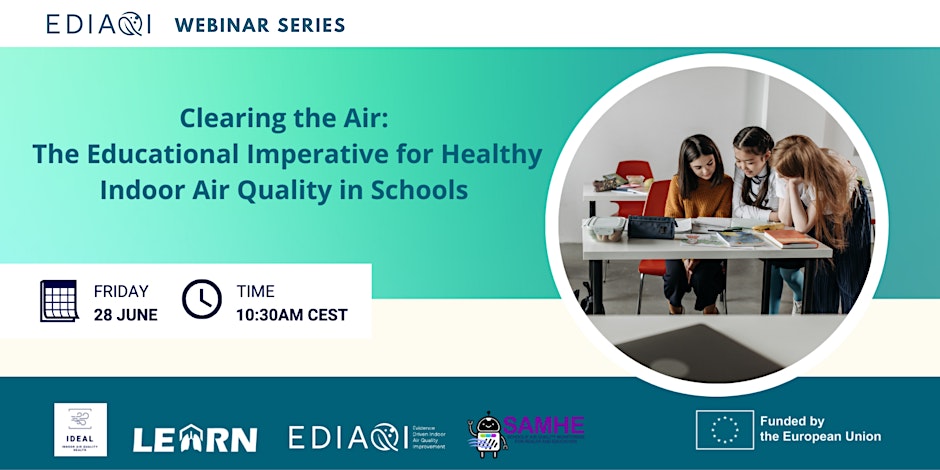The first HORUS NEWSLETTER has arrived, and we are thrilled to share with you the incredible progress and achievements of our project over the past few months. In this edition, you will find detailed insights into our various initiatives, exciting updates on ongoing research, and a glimpse into the dynamic and busy journey of 2024. From groundbreaking discoveries to community engagements, our team has been working tirelessly to advance our mission. Join us as we reflect on the milestones we’ve reached and look forward to the promising developments on the horizon.
HIGHLIGHTS
-
HORUS VIDEO:
The Healthy Cities Generator, developed by Bax and Healthy Cities, is a pivotal component of the HORUS initiative. This innovative tool is designed to support cities in transforming urban environments into key positive health determinants. Through comprehensive strategies and data-driven insights, the Healthy Cities Generator aims to foster healthier, more sustainable communities. By integrating evidence-based practices into an easy to use digital interface the tool seeks to enhance public health outcomes, mitigate environmental risks, and promote well-being across all city populations. This video highlights how the generator operates, its impact on healthy urban planning. Click here to find out more.

-
HEALTHY CITIES- VIDEO PRESENTATION
This presentation will delve into a pivotal component of the HORUS initiative, specifically the #healthycities generator developed by Bax and Healthy Cities. This innovative tool is designed with the objective of meticulously planning and transforming urban environments into key positive health determinants. Through comprehensive strategies and data-driven insights, the #healthycities generator aims to foster healthier, more sustainable communities. By integrating advanced technologies and evidence-based practices, the platform seeks to enhance public health outcomes, mitigate environmental risks, and promote well-being across all city populations. The session will highlight how the generator operates, its impact on urban health planning, and the future directions for expanding its capabilities to address emerging health challenges in metropolitan areas. Click here
Technical Work
- Unlocking the Secrets of making healthier Cities. Insights from the HORUS Project: Deliverable 2.2.
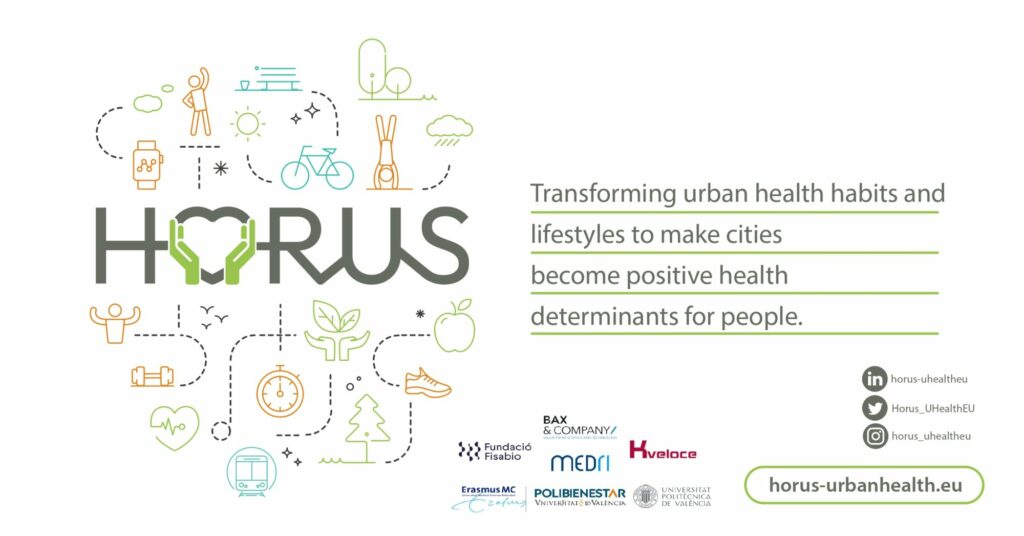
-
WP2 developments on Strategic road map for measuring the association between health determinants and risk behaviours.
A strategic document from our partner Polibienestar that provides an overview of the planned approach to analyse the association between urban environment characteristics and risk behaviours for Non-Communicable Diseases (NCDs), specifically Type 2 Diabetes Mellitus (T2DM) and Cardiovascular Diseases (CVD). Click here
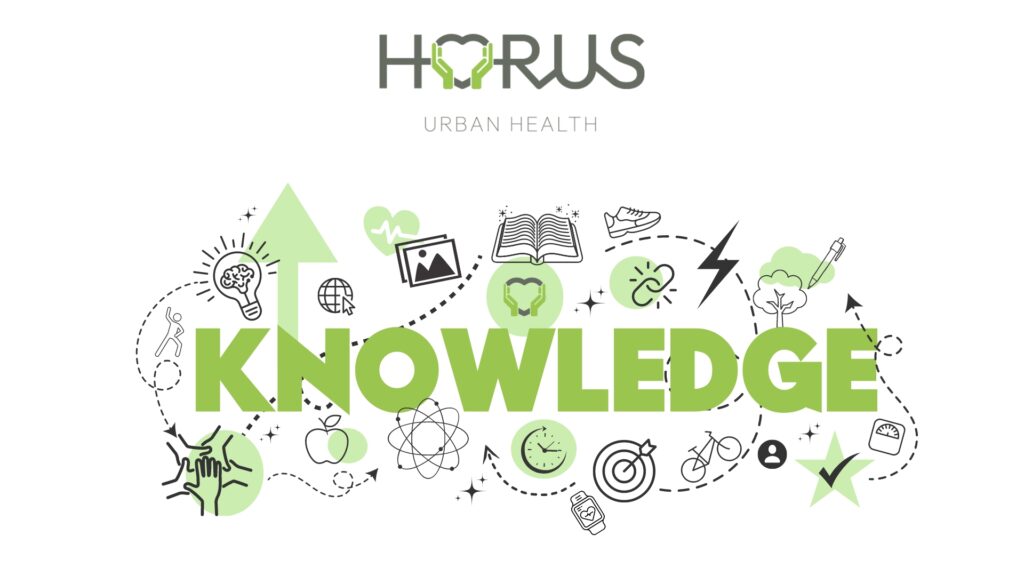
-
HORUS Literature Review of observational epidemiological studies analysing the relationship between the urban environment and the prevalence/incidence of NCDs
Review of observational epidemiological studies analysing the relationship between the urban environment and the prevalence/incidence of NCDs and associated risk behaviours. Click here

-
Wakamola.
Presentation of Wakamola🥑a#bot that simulates a conversation in messaging services such as Telegram and can identify individual health behaviours (diet, physical activity, clinical conditions…) and social factors (environment, social network) related to overweight and obesity. Click here. Also, to check first considerations Wakamola: Click here
HORUS PILOTS UPDATES

-
RIJEKA PILOT/MEDRI 10-03-2024 – Press conference – On public communication activities. Click here
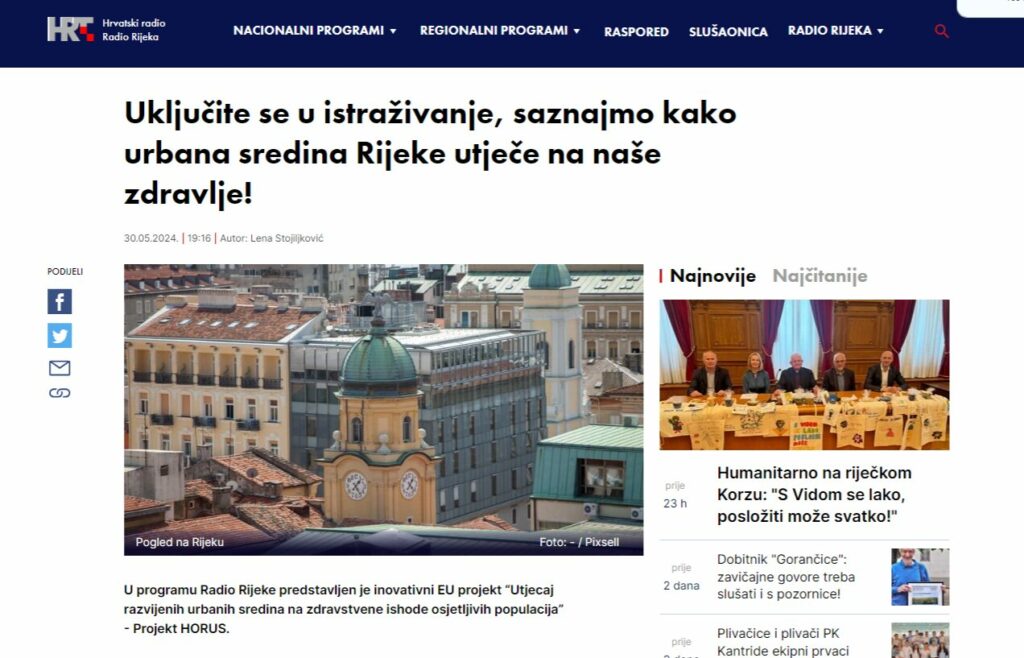
-
HORUS at HRT Radio Rijeka interview- Prof. Vanja Vasiljev.
On 30 May, the Horus project was unveiled on HRT Radio Rijeka in Croatia in an interview with Professor Vanja Vasiljev, a graduate in Social Medicine and Epidemiology from the Department of Social Medicine at the Faculty of Medicine in Rijeka. Click here
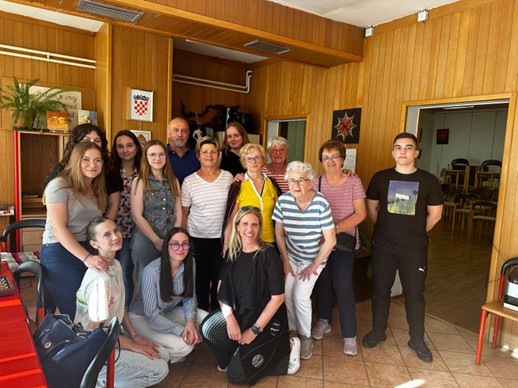
-
Dissemination activities – MEDRI – Rijeka Pilot Study
The team of our partner, MEDRI, from the Department of Social Medicine and Epidemiology, Faculty of Medicine, University of Rijeka, Croatia, is carrying out different dissemination activities within the Rijeka pilot study. Click here
HORUS HEALTH TIPS

-
Research Blog: HORUS Direct Health Outcomes.
Information from Horus project partner Bax and Company and its Healthy Cities department on how urban planning changes and how it can also have direct health outcomes on specific physical and mental health conditions. Click here

-
HORUS Environmental and lifestyle health determinants and outcomes of urban planning.
Basic information to raise awareness of the environmental and lifestyle factors that affect our health. Click here
EVENTS

-
-
HORUS at HaDEA.
Presentation of the HORUS project to the European Digital and Health Executive Agency (HaDEA), the executive agency of the European Commission that implements programmes in health, food safety, digital, industry and space.

-
- 28 June. Clearing the Air: The Educational Imperative for Healthy Indoor Air Quality in Schools.
This event, organised by the LEARN and EDIAQI projects, will discuss how to effectively measure indoor air quality in schools and its implications for health, looking at the measures being taken in the EU. Click here
INTERNATIONAL DAYS
-
Zero Waste Day – 30 March. Click here
-
7 April, the World Health Day 2024: My health, my right. Click here
-
9 May. Europe Day. Click here
-
28 May: World Nutrition Day. Click here
-
World Bike Day. 3 June. Click here
As we wrap up this edition of our newsletter, we reflect on the remarkable progress made by the HORUS project, in its first 6 months, in exploring the intricate relationships between urban environments and health outcomes. Our studies in the dynamic cities of Rijeka, Rotterdam, and Valencia have provided valuable insights into how urban characteristics influence non-communicable disease (NCD) behaviors and overall public health.
The success of the HORUS project is a testament to the power of collaboration. We extend our deepest gratitude to our diverse partners – from leading academic institutions and city governments to dedicated community organizations. Their collective expertise and commitment have been pivotal in uncovering how city design and socio-economic factors can be optimized to promote healthier lifestyles and mitigate the impact of NCDs. Specially, we would like to thank the project partners for its work and contributions, starting by
Looking ahead, we are excited to translate these findings into actionable strategies and policy recommendations that will help shape healthier, more resilient urban spaces. The experiences and lessons drawn from our pilot cities is expected to guide other urban areas in creating environments that foster active living, reduce health inequities, and improve the quality of life for all their inhabitants.We invite you to stay connected and continue this journey with us. Follow the HORUS project on our social media platforms for the latest updates, insights, and opportunities to engage. Follow us on: Twitter Facebook LinkedIn
Thanks!
The HORUS team


